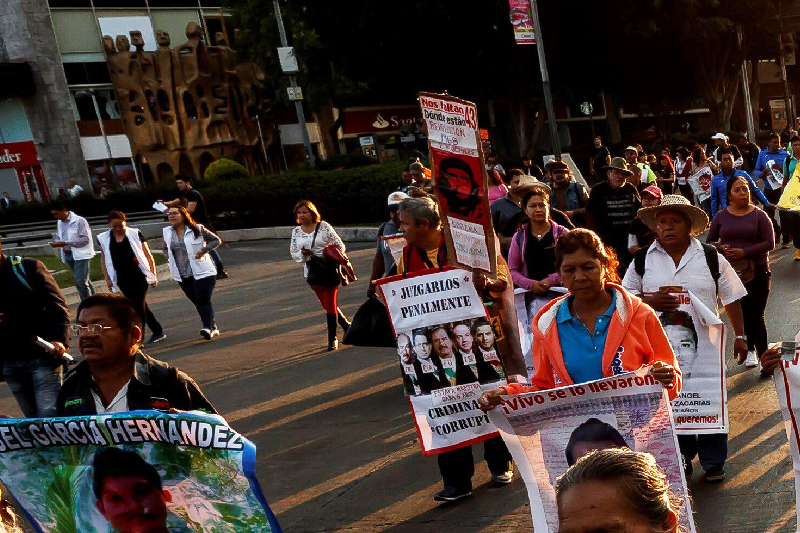
Crisis Unveiled: Mexico’s War on Drugs Census Raises Eyebrows
Unmasking the Shadows: Mexico’s Controversial Census of ‘War on Drugs’ Victims Raises Concerns
In a move that has sparked controversy and raised suspicions among activists, the Mexican government recently initiated a review of the official register of “disappeared” individuals, a process purportedly aimed at eliminating inaccuracies. However, critics argue that the lack of transparency surrounding this endeavor suggests a hidden agenda to manipulate numbers ahead of the 2024 presidential election.
As per the latest announcement, the government claims to have verified only 12,377 out of the 113,000 reported cases of disappeared individuals. An additional 16,681 were located, either alive or through death certificates. However, in a significant majority of cases, insufficient information impedes efforts to identify or initiate search procedures, leaving the fate of these individuals uncertain.
The rising number of disappearances has become a symbol of the pervasive insecurity plaguing Mexico. President Andrés Manuel López Obrador has dismissed these figures as inflated, attributing them to political motives aimed at undermining his government. While the debate over the accuracy of statistics rages on, experts argue that the real issue lies in addressing the root cause – impunity.
Keep Reading
Carlos Pérez Ricart, a political scientist in Mexico City, emphasizes the need to shift the focus from the numerical aspect to understanding how and why people are disappearing and what measures are in place to find them. The militarized “war on drugs,” initiated in 2006, ushered in a surge in violence that has persisted throughout López Obrador’s term, marked by unfulfilled promises of a revamped security strategy.
Despite the establishment of the National Search Commission in 2018 to locate disappeared individuals, progress has been slow, and the number of disappearances continues to climb. López Obrador’s critics, including opposition presidential candidate Xóchitl Gálvez, point to the stark reality of 47,000 disappearances in the past five years, making this term the most violent in Mexico’s history.
In June, López Obrador announced a comprehensive “census” to scrutinize disappearances on a case-by-case basis. The subsequent resignation of Karla Quintana, who led the National Search Commission, fueled suspicions of political interference. Quintana’s replacement, Teresa Guadalupe Reyes Sahagún, drew criticism for her appointment process lacking consultation, transparency, and scrutiny, according to the UN’s human rights office in Mexico.
The lack of public disclosure regarding the commission’s methodology has led some family collectives of missing individuals to reject the update, claiming that the government is “disappearing the disappeared” without transparency. Political analyst Pérez Ricart notes that the commission, once perceived as independent, now appears to serve the president’s interests, diminishing its legitimacy.
Despite the controversy, the overarching issue of disappearances remains shrouded in mystery. Questions linger about the identities of the disappeared, their whereabouts, those responsible for their disappearance, and the lack of investigations into these cases. As Mexico grapples with persistent violence and insecurity, human rights advocates, such as Tyler Mattiace from Human Rights Watch, call on the president to prioritize justice over political posturing and address the systemic causes contributing to this ongoing catastrophe.




